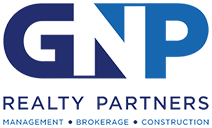Good tenant relations equate with good business. Maintaining strong, positive relationships with your residential or commercial tenants will increase tenant satisfaction, lower turnover rates and lead to more profitable investments. They can also lead to referrals, which are especially valuable on the commercial side in an office market characterized by more inventory than demand.

Property managers play a critical role in helping to build strong tenant relations, fostering a sense of trust that pays off for building owners and investors in many ways. In this article, we explore the role of a property manager in maintaining tenant relations to add value and reduce expenses.
The role of property managers in tenant relations
Property managers handle all day-to-day operations that directly or indirectly impact tenants. This includes maintenance, managing systems like climate control, rent collection, and enforcing lease agreements. These functions not only ensure smooth building operations but also shape the tenants’ overall experience. How a property manager approaches these responsibilities—from prompt communication about repairs to clear guidelines for community living—affects tenants’ satisfaction and perceptions of the property. By overseeing these tasks, property managers ensure a positive and professional tenant relationship, which benefits both the tenants and the property owners.
Want to learn more about Property Management?
Request Information | or Call Us at 312-329-8400
How property management improves tenant retention and property reviews
A skilled property manager engenders mutual trust and respect between the parties. The result is a reduced likelihood of diminished property damage or disrespect for the property. When tenants feel valued and respected, they return the favor. They are more likely to adhere to the lease agreements they signed and go the extra step to promptly communicate with the property manager about concerns or problems with the property. Timely communication from tenants means less property damage and enables managers to address issues quickly and easily, further increasing tenant satisfaction.
Positive tenant interactions help create a sense of community within the building, reducing conflicts between tenants as they are more likely to talk to each other and resolve any issues independently of the property manager. When a manager does need to be involved, the parties are more likely to agree to a fair, win-win outcome.
The monetary value of great tenant relations: value-add and costs avoided
While a building characterized by its sense of community is a nice side benefit, the bottom line is what is most important for building owners and investors. The monetary value of great tenant relationships is evident in both value-added outcomes and the avoidance of unnecessary costs. Consider these outcomes of strong tenant relations:
- Occupancy rates. Maintaining positive tenant dynamics leads to high tenant satisfaction. Satisfied tenants equate with lower turnover rates, thereby reducing periods of vacancy, which are costly—not only in the loss of monthly income but in the cost to ready a space for a new tenant, e.g., cleaning, repairs, new carpeting, painting, etc.
- Rental rates. Highly satisfied tenants are more tolerant of rent increases, even if rents are not rising proportionately elsewhere in the market. A building known for excellent property management is a draw for most tenants. For an owner with multiple units, even a small monthly differential multiplied across many units will add up quickly on the income balance sheet.
- Reputation. Satisfied tenants often lead to positive reviews—online and word-of-mouth—generating interest from prospective tenants and reducing the marketing costs to attract new, quality tenants. Personal referrals typically result in a similar quality of tenant, especially for residential buildings. (A high-quality residential tenant is unlikely to refer someone they know to have low respect for community living.) Likewise, negative reviews can hurt your leasing success.
- Property value. Commercial and residential buildings with high and consistent occupancy rates increase a property’s Net Operating Income (NOI), which, in turn, directly increases the property’s value at the time of sale. Lenders rely heavily on NOI to determine a mortgaged property’s potential income and forecast cash flows. Owners seeking a loan against the value of the building risk the rejection of a mortgage application if a property has a net operating loss.
- Maintenance. Satisfied tenants care about the property and typically are quick to report maintenance issues before they become bigger (and more costly) problems. Preventative maintenance is typically less expensive than emergency repairs. Consider the cost of fixing a pipe with a small leak during regular business hours versus a burst pipe at three in the morning on a holiday weekend.
- Legal matters. Positive tenant relationships minimize frivolous lawsuits on tenants’ part and help avoid disputes that can lead to costly evictions, legal fees or settlements. Of course, there may be situations that warrant engaging an attorney, but eliminating just one instance can save owners thousands of dollars.
Let an expert property manager carry the load of tenant relations
Investing in great tenant relations goes far beyond creating a positive community atmosphere all tenants enjoy. It is about increasing and protecting the value of owners’ investments. Developing and maintaining excellent relations with commercial or residential tenants pays off through increased income, reduced direct expenses and higher property value.
Few owners have the time or expertise to focus on tenant relationships. Investing in a high-quality property management firm with experience and expertise in tenant relations will help owners reap the ROI from quality property management and highly satisfied tenants.








